Voice Assistant for Quality of Life and Healthcare Improvement in Aging Populations
Our mission: use voice-based devices, information from Electronic Health Records, natural language understanding, and machine learning to create a health digital assistant personalized for the users’ needs

Emilia Farcas, PhD, PI, is Assistant Research Scientist at UCSD's Qualcomm Institute, the San Diego division of the California Institute for Telecommunications and Information Technology. Her research interests are software-engineering for managing the complexity of cyber-physical systems, modeling requirements and architectures, scientific data models, messaging infrastructures, service-oriented engineering, governance, and quality assurance.
She applied this broad expertise in various cyber-infrastructure projects at UCSD in the fields of health sciences and clinical trials, large-scale oceanographic observatories, and fail-safe automotive systems. She was the lead architect for the Sensing and Acquisition subsystem of the NSF-sponsored Ocean Observatories Initiative project, where she researched novel methods for data distribution and control of oceanographic experiments. Since 2009, Dr. Farcas has been lead system architect on the NIH-funded CYberinfrastructure for COmparative effectiveness REsearch (CYCORE) project, where she led the design and implementation of the cyberinfrastructure supporting acquisition, storage, visualization, analysis, and sharing of data for cancer trials. CYCORE collects biometric and behavioral data through home-based sensors and patient reported outcomes through daily surveys delivered via smartphone apps. She is currently Co-Investigator on two NIH grants that use the CYCORE infrastructure in clinical studies for head and neck cancer patients, pancreatic cancer patients, and diabetes.
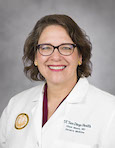
Alison Moore, MD, MPH, Co-Investigator, is the Larry L. Hillblom Chair in Geriatric Medicine and Professor and Chief of the Division of Geriatrics and Gerontology, Department of Medicine at UCSD. She is a Fellow as well as a member of the Board of Directors of the American Geriatrics Society. Her research has been funded by NIAAA, NIDA, and NIA as well as foundations, and over the past 20 years has focused on a) the epidemiology and health-related effects of alcohol and other substances among diverse populations, b) developing and testing screening and brief interventions to reduce unhealthy alcohol use among older adults with multiple comorbid conditions, and c) developing and testing community-partnered interventions addressing alcohol and other substance use in diverse populations including Latinos and older adults. She has an emerging expertise in technology to maintain independence in older adults, and she participated in five studies addressing and/or employing online and mobile technology.
Furthermore, Dr. Moore is one of the inaugural members of the UCSD Department of Medicine Mentoring Program, she has been a recurrent ad hoc reviewer for the National Institute on Aging (NIA) Special Emphasis Panel, Grants for Early Medical/Surgical Subspecialists’ Transition to Aging Research (GEMSSTAR) and a standing member of the NIA, Clinical Aging Review Committee, as well as an ad hoc member of the NIA K76 Paul B. Beeson Emerging Leaders Career Development Award in Aging. Dr. Moore has been awarded research funding from the NIA, NIDA, and NIAAA, and in 2018 she received a P30 from NIA: Alzheimer’s disease-Resource Centers for Minority Aging Research (AD-RCMAR) to support underrepresented minority investigators to conduct research focused on Alzheimer’s disease and related dementias.

Michael Hogarth, MD, Co-Investigator, is a Professor in the Division of Biomedical Informatics in the Department of Internal Medicine at UCSD and Chief Clinical Research Information Officer for UC San Diego Health. He is an expert in clinical informatics and a board-certified Internist. His research interests include public health informatics, biomedical ontologies and clinical natural language processing, novel computing architectures, and developing systems that support clinical research at the point of care.
He has led the design, development, and implementation of the California Integrated Vital Records System (CalIVRS), a mission critical vital statistics system provisioning 250,000 death registrations, 500,000 birth registrations, and 6,000 fetal death registrations annually in California. The system is the first electronic death registration system in the world to use Health Level-7 (HL7) standards to integrate with a commercial EHR and the National Center for Health Statistics reporting systems. His team also developed the Maryland death registration system and is currently building the Maryland birth registration system. Dr. Hogarth has also pioneered the use of innovative technology for data and knowledge management and ensuring robust implementations that can scale over time. The clinical resources center (CRC), the first intranet web portal to deliver knowledge at the point of care, has been in continuous use at UC Davis for over twenty years. He led the development and on-going management of health IT systems for the Athena Breast Health Network initiative, which has the distinction of having supported one of the largest fully electronic patient-reported information initiatives (120,000 participants over 6yrs). The project has also successfully integrated a patient-facing secure questionnaire system with EHR systems at four institutions. He also led the design, development, and implementation of the novel informatics infrastructure used in the I-SPY2 breast cancer trial, an adaptive multi-institutional clinical trial of novel agents in breast cancer conducted across 20 institutions in the US.
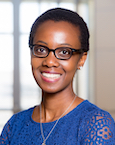
Ndapa Nakashole, PhD, Co-Investigator, is Assistant Professor in the Department of Computer Science and Engineering and a member of the UCSD Artificial Intelligence Group, which is part of a larger campus-wide effort in Computational Statistics and Machine Learning (COSMAL) and engages in research on machine learning, reasoning under uncertainty, and cognitive modeling. Prior to UCSD, she was a Postdoctoral Fellow in the Machine Learning Department at Carnegie Mellon University. Dr. Nakashole uses machine learning to build computer systems that intelligently process and understand human language. Her research focuses on NLP, machine learning, and data mining, in particular knowledge acquisition, machine-learning methods that learn language from large collections of data, algorithms that enable computers to understand and generate human language, entity recognition and linking, question answering, representation learning, and more recently, machine translation for low-resource languages. Notably, she has worked on several projects in machine reading, with a prior focus on relation extraction.
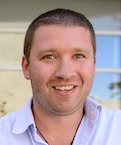
Nadir Weibel, PhD, Co-Investigator, is Associate Research Professor in the Department of Computer Science and Engineering at UCSD, a Research Health Science Specialist at the VA San Diego Health System. He is leading the Human-Centered and Ubiquitous Computing Lab at UCSD and he is one of the faculty of the Design Lab and the Contextual Robotics Institute. His work is at the intersection of engineering, design, cognitive science, and healthcare and he has been working in a variety of clinical fields to design and then develop interactive technology that could serve both patients and clinicians. He is also an ethnographer using novel methods for studying and quantifying the cognitive consequences of the introduction of technology in the everyday life.
Dr. Weibel’s work spans patient-physician communication, multimodal stroke characterization, usage of Augmented Reality during medical simulation, CPR, and in surgery, as well as understanding the needs of patients in the Trauma Bay and ICU. His work on older adults’ needs resulted in developing technology to support their social needs, as well as specific aids for speech-language therapy. His research also tackles the development of new Human-Centered methods to better understand stakeholders using sensor data, and the application of Human-Centered Design in healthcare. Dr. Weibel and his team developed interactive system that respond to the needs of specific populations such as color-blind people, or people living with HIV, with special consideration of ethics that is intrinsic with pervasive sensing and sensing technology in healthcare.
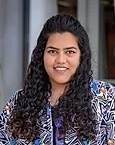
Janet Johnson, PhD Student in Computer Science at UCSD. Her research is on Human Computer Interaction, focusing on interaction design for extended or mixed reality and its applications in healthcare. She has been working on designing an extended reality environment for casualty care with a focus on collaborative remote surgery, aiding the design of a mixed fidelity prototyping and authoring tool in mixed reality that exploits situated sketching, and introducing mixed reality interventions to aid collaboration between family members and the care team at an ICU. She also co-designed and evaluated HoloCPR, a mixed reality application that provides real-time resuscitation (CPR) aid for novices. Furthermore, she designed a mobile intervention to improve patient-centered communication in primary care.

Khalil Mrini, PhD Student in Computer Science at UCSD. His research interests are in Natural Language Processing and Deep Learning. More precisely, he is working on Generalization and Interpretability for Learned Text Embeddings. He wants to develop interpretable neural models – with applications in document classification, parsing, etc. – and make them generalizable to a wider range of applications and environments. He received his Master’s and Bachelor’s degrees in Computer Science from the École Polytechnique Fédérale de Lausanne (EPFL), in Switzerland. As part of his Bachelor’s, he spent a year on exchange at Singapore’s Nanyang Technological University. He interned for a summer at Infosys in their Bangalore, India headquarters, and for a semester at the EPFL-based Swisscom Digital Lab.

Chen Chen, PhD Candidate in Computer Science and Engineering at UCSD. His research interest is on Human Computer Interaction, focusing on novel input tools, techniques and devices to enable accessible human-computer interactions designs, and mobile computing. He received a master degree from Carnegie Mellon University and a bachelor degree from the University of Nottingham, in the UK. Recently, he designed a novel input modality that is able to reconstruct users’ facial characteristics by leveraging underlying facial bio-signal patterns, for remote AR collaborations using head-mounted devices. During the master program, he spent two years on researching, designing and building a large scale end-to-end distributed system, supporting managing data streaming generated by the customized designed general purpose sensor nodes. For more detail, please refer to his website.
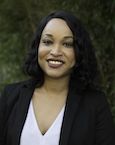
Kemeberly Charles is a medical student at UCSD. She graduated from UCLA with a BS in molecular, cell, and developmental biology.

Ella Lifset is an undergraduate student in the Division of Biological Sciences at UCSD. She is pursuing a BS in Human Biology. Her research interest is in healthy aging, and she has previously worked with the UCSD Division of Geriatrics and Gerontology on several projects including Advance Care Planning support and an investigation into cannabis as an emerging treatment in older adults.
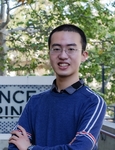
Yichen Han is a final year undergraduate student in Computer Science at UCSD, and also an incoming Master student in Electrical and Computer Engineering of Carnegie Mellon University (Pittsburgh, PA). His research interest is combining Artificial Intelligence and Human Computer Interaction to build more trustworthy and unbiased systems. Right now he is a research assistant in the VOLI project focusing on programming with intelligent virtual assistants and data analysis.

Peng Wei Lee (Nova) is an undergraduate student in Jacob School of Engineering at UCSD. She is majoring in electrical engineering and minoring in design. She wants to pursue in sustainable designs and research and development.

Christopher Bo Han is a rising third-year undergraduate student at UCSD. He is majoring in Mathematics--Computer Science. He is interested in pursuing the path of engineering and is now a research assistant at VOLI to gain more experience in programming.

Mary Draper, MPA, is a retired health care executive. During her career at Kaiser Permanente, she was responsible for departments of clinical research, member health education, medical libraries, quality assurance, residency and fellowship programs and post graduate nursing education. She held a startup assignment as Administrator for Clinical Systems Development, a new business unit prototyping an electronic health record. Now in her 80’s she lives in an Independent Living community. Continuing a long-standing interest in educating about technology, she teaches classes in the use of voice assistants, QR codes, blockchain, etc. Her emphasis is on the practical application of new and emerging technologies on the lives of older adults.
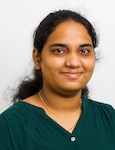
Akhila Chekuri, Msc, graduated from UCSD in 2023. After finishing her Bachelor's degree from the National Institute of Technology, Tiruchirappalli, India, she joined Aurigo Software Technologies in 2017. Akhila worked for Aurigo for four years as a Software Engineer and Senior Software Engineer. At Aurigo, she designed and developed multiple end-to-end modules and worked in product development, architecture, performance, and demo teams. In 2021, to improve her technical skills, she enrolled in a Master's in Computer Science program at the University of California San Diego. From early 2023, she started working on the VOLI project under the guidance of Prof. Hogarth and Dr. Farcas. During the summer of 2022, she interned at d-Matrix, where she started working on Profiler. After graduating from UCSD, she is continuing her work on Profiler as a full-time employee at d-Matrix from July 2023.

Armaan Singh Johal is a fourth-year undergraduate at the University of California San Diego, pursuing dual degrees in Mathematics with a Computer Science concentration, and Cognitive Science, specializing in Machine Learning and Neural Computation. His research interests encompass a wide spectrum of topics at the intersection of AI and healthcare, with a recent focus on the fine-tuning of large-scale Language Models (qLoRa, RLAIF, DPO), vector embedding optimization, contextual retrieval methods, and AI agents. At VOLI, Armaan is focused on the development and application of AI models that enhance the patient experience.
Previously, Armaan was part of the NematiLab group at the Altman Clinical and Translational Research Institute, where he helped develop predictive deep learning models for the real-time detection of patient deterioration in ICU settings. His industry experience includes an internship at an EHR services company, and more recently, a position as an AI Engineer at Centria Healthcare, where he creates AI models to improve the efficiency and effectiveness of ABA therapy for children with autism. Armaan is also the founder of Careify, a company offering EHR hosting and AI solutions to private practices and community health clinics. He is a contributor to OpenEMR, the leading open-source Electronic Health Record solution, where he helps lead the development of SMART on FHIR application frameworks. Beyond his professional and academic pursuits, Armaan enjoys water polo, surfing, scuba diving, bhangra dancing, and playing his electric guitar.

